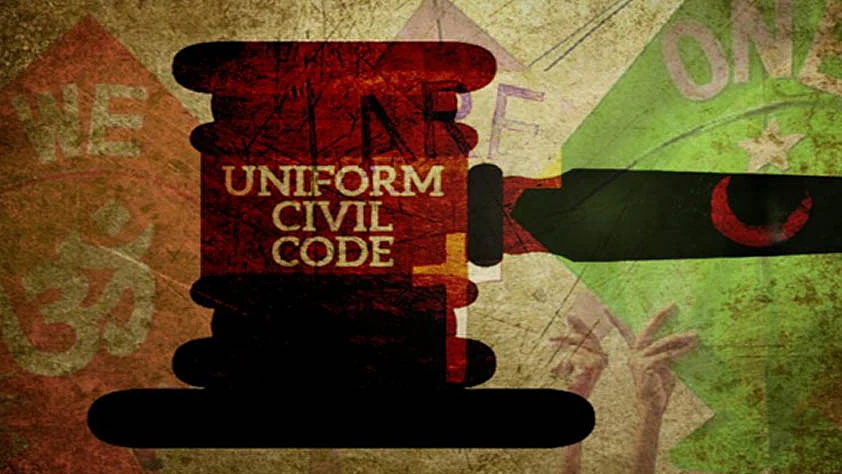Opposition parties question need, timing of UCC at Parliamentary Committee meeting, said sources
The Parliamentary Standing Committee was attended by 17 members of the total 30 members

The Opposition parties, on Monday, reportedly questioned the need and timing of the 22nd Law Commission’s consultation on the Uniform Civil Code at the meeting of the Parliamentary Standing Committee on Law and Justice headed by Bharatiya Janata Party (BJP) MP Sushil Modi.
Ahead of the meeting held on July 3, the 2018 consultation paper of the 21st Law Commission on the subject was circulated to its members. The paper had pointed out that the Uniform Civil Code was neither desirable nor required. On the June 14, 22nd the Law Commission of India invited suggestions from the public on the UCC and the last date of the submission is July 14.
The 185-page consultation paper on “Reforms of Family Law”, which was released in August 2018, stated that the urge for uniformity should not be a threat to the territorial integrity of the country.
Of the 30 members in the Standing Committee, only 17 attended. Sushil Kumar Modi, Mahesh Jethmalani, Veena Devi, Darshana Singh, Ramesh Pokhriyal, Sandhya Ray, Chavda Vinod Lakhamashi, and Upendra Singh Rawat of the BJP; Vivek Tanka, Jasbir Singh Gill, Manickam Tagore and Kuldeep Rai Sharma of the Congress; P Wilson of DMK; Sanjay Raut of Shiv Sena (UBT); Rajan Vichare of Shiv Sena, KR Suresh Reddy of BRS, and Malook Nagar of BSP, were part of the discussions.
According to sources, Congress leaders questioned the timing of the consultations on UCC. Sources said Manickam Tagore reportedly pointed out that the government had not spelt out its agenda on the subject, while questioning if the government would hold consultations with state governments or make a provision for state-specific amendments.
Also Read: Keep tribals out of UCC: BJP MP Sushil Modi
Congress leaders reportedly wanted to know if the union government had identified the principles which would guide the achievement of uniformity and if the government had considered if the UCC or the attempt to reform the personal law would be secular in nature and would guarantee gender equality. They also reportedly queried whether there is a need for a second consultative process when the 21st Law Commission had given its views.
Both DMK and Congress MPs reportedly questioned if this would affect the autonomy of states. Sources said DMK MP P Wilson pointed out that the UCC could rob states of their power to make legislations for citizens. There are certain exceptions made for Karnataka, Andhra Pradesh, Telangana and the north-east states in Article 371. They wanted to know if the union government would amend all the laws that encroach on the federal structure of the Constitution.
All the Opposition leaders reportedly wanted to know if introducing UCC would challenge the spirit of equality and freedom of religion as enshrined in Article 25 of the Constitution. They pointed out that it was anti-poor and anti-tribal. According to sources, Wilson reportedly said Article 29 of the Constitution protected the interests of minorities and they had the right to conserve it.
Different religions have varied customs for marriage, explained Wilson. UCC will damage to Hindu rights and customs also as the code will only recognise only registered marriages before a civil authority.
According to sources, Shiv Sena (UBT) MP Sanjay Raut underscored that UCC would infringe on the practices of the tribal community under the sixth schedule. He pointed out that unless anyone knew what the Law Commission has prepared, the public cannot make an informed decision on the subject.
Countering the Opposition leaders, BJP leaders supported the implementation of the law. Reportedly, BJP MP Mahesh Jethmalani said he had studied the Constituent Assembly debates and from it was clear that the founding fathers wanted to implement Uniform Civil Code. But, he too could not spell out what exactly should be implemented.
According to sources, a Congress MP pointed out that the intention of Ambedkar was not questionable, but the intent of the Modi government was not clear.
Wilson mentioned that the UCC was placed under Article 44, which falls under the Directive Principles of State Policy, and not made part of the binding articles was because of the severe opposition within the Constituent Assembly itself.
Another BJP member is reported to have said that UCC was the need of the hour. A few BJP leaders, according to sources, wanted to keep tribals out of the ambit of the UCC as every law has exceptions.
Reportedly, a BRS MP wanted to know what change the government was planning to bring through UCC and that it would be difficult to comment on the issue without a draft.
Vivek Tankha, who is also a member of the Standing Committee tweeted his note on the subject, which pointed out that the 2018 paper had after consultations with several groups stated that “in the absence of any consensus on a uniform civil code the best way forward would be to preserve the diversity of personal laws but at the same time ensure that the personal laws do not contradict fundamental rights guaranteed under the Constitution of the country.
Joint Secretary Varsha Chandra and member secretary Khetrabasi Biswal of the Law Commission, additional secretary KR Sajkumar of the Legislative Department and joint secretary Sunita Anand of the Department of Legal Affairs were also reportedly part of the discussions.
To all the questions posed by several leaders, the Law Commission members reportedly said they were only in the consultative stage and had no document to provide currently.
Follow us on: Facebook, Twitter, Google News, Instagram
Join our official telegram channel (@nationalherald) and stay updated with the latest headlines
- Congress
- Opposition
- Uniform Civil Code
- Parliamentary Standing Committee
- Bharatiya Janata Party (BJP)
- Shiv Sena (UBT)
- Bharat Rashtra Samithi (BRS)
